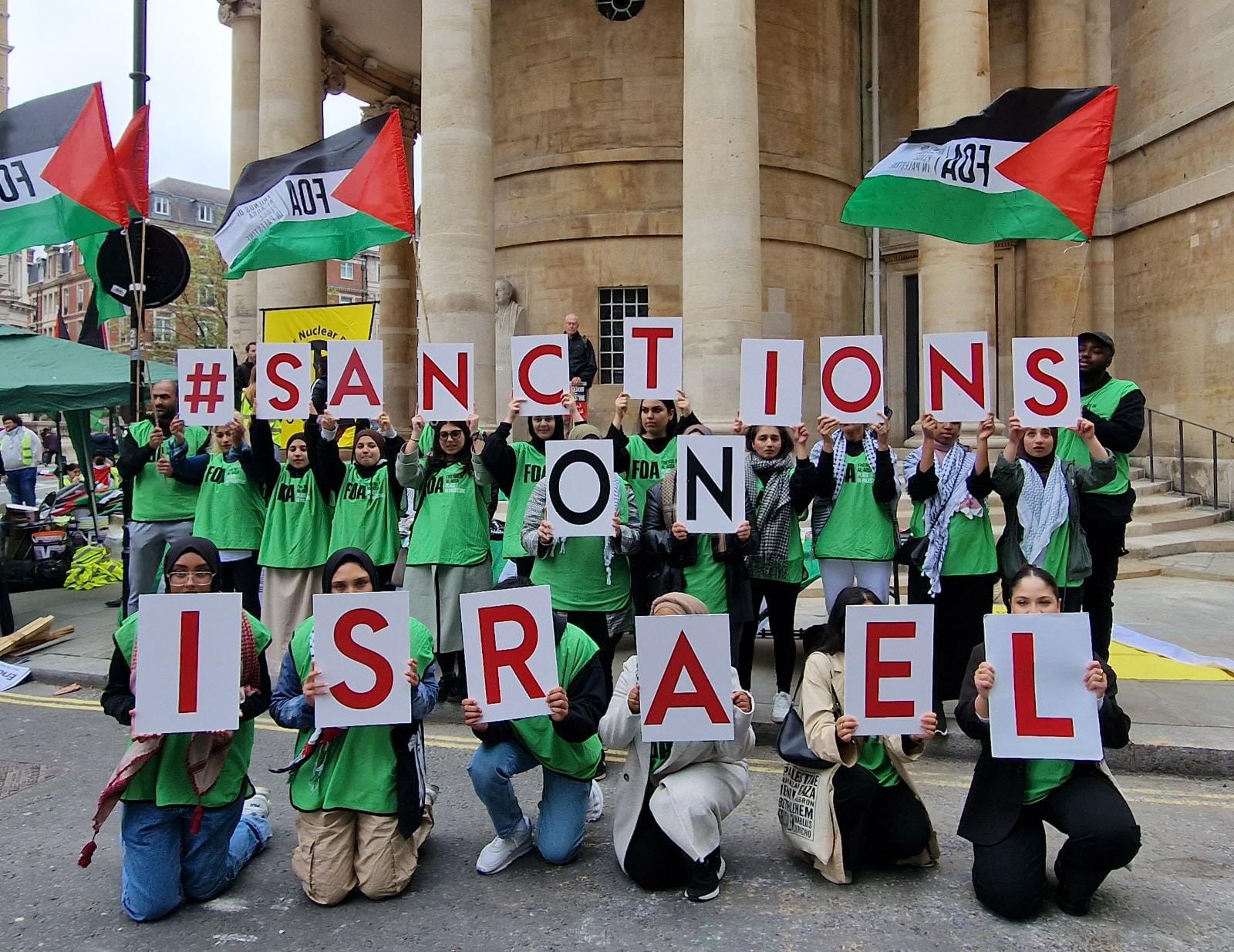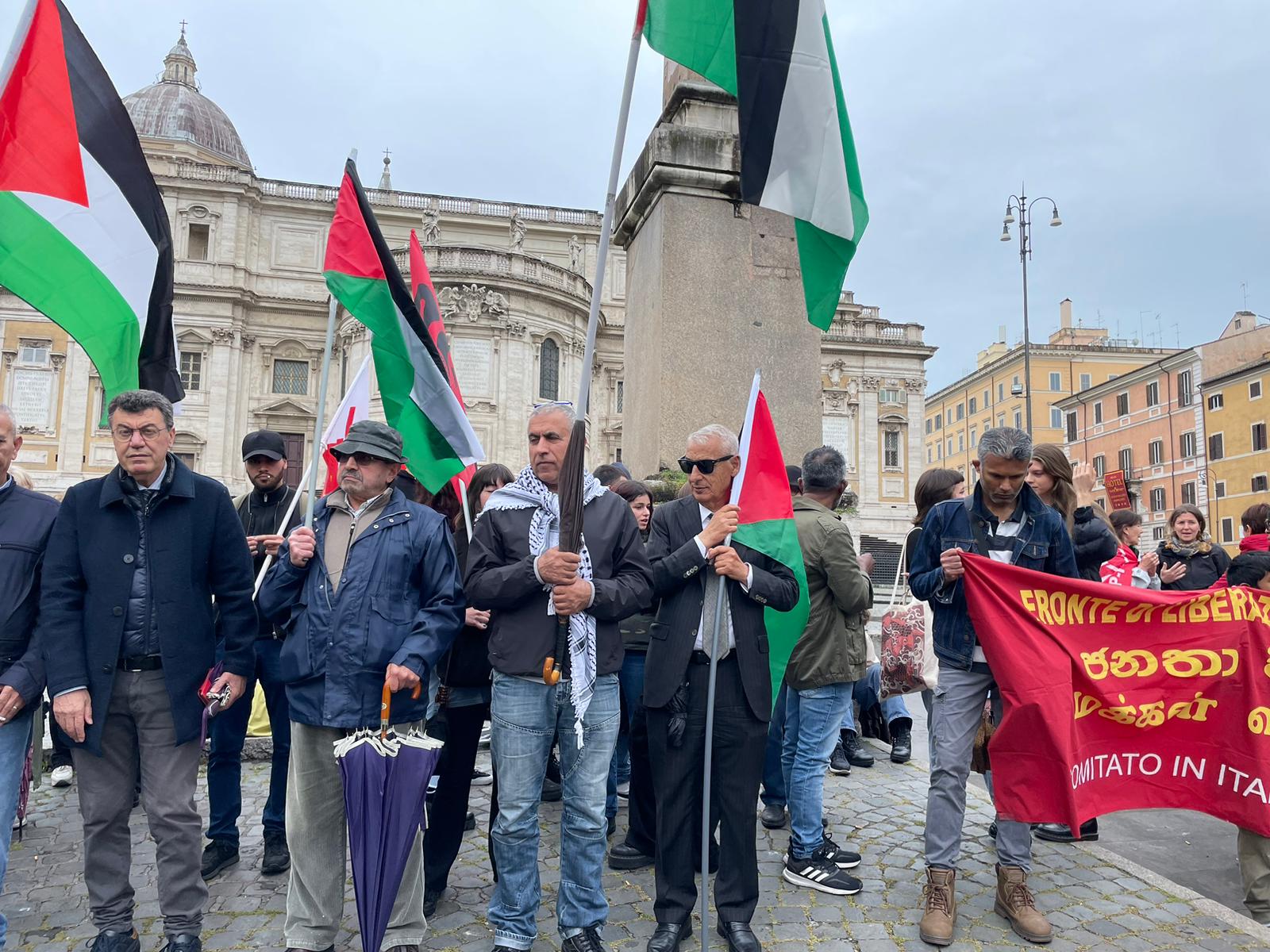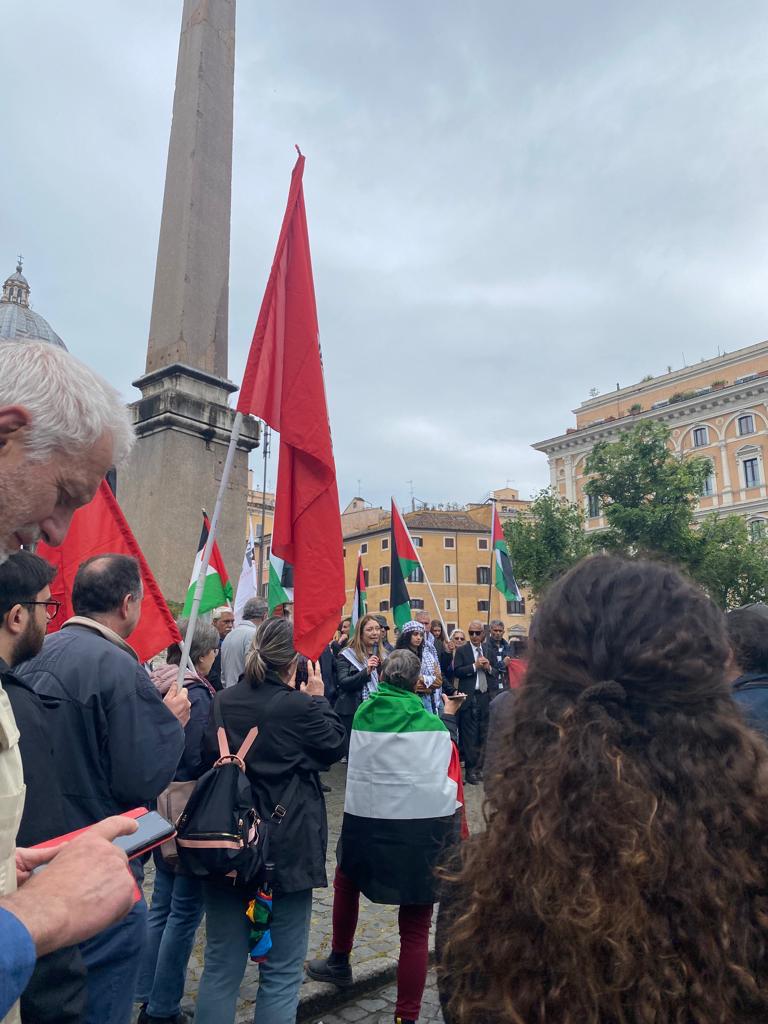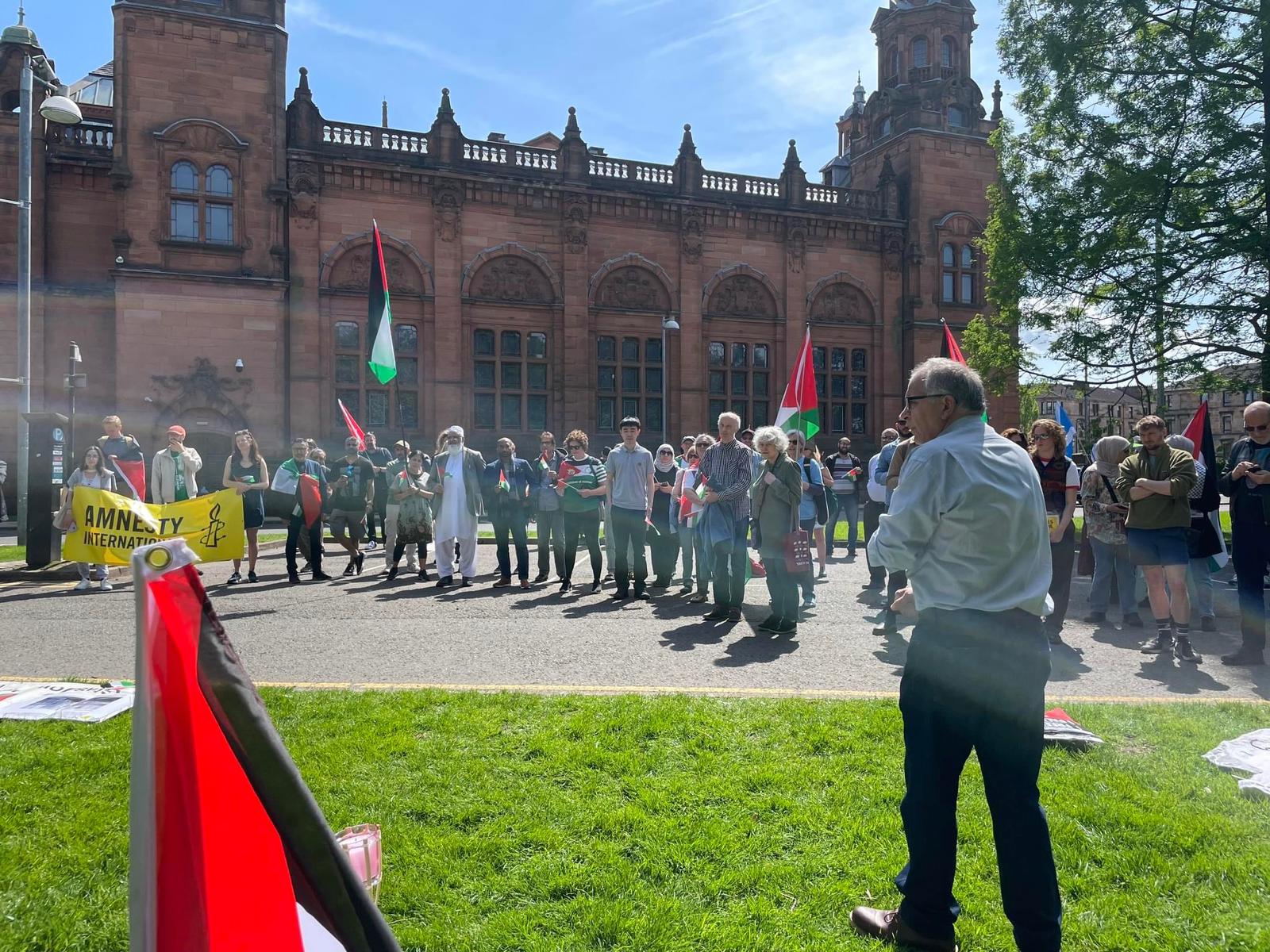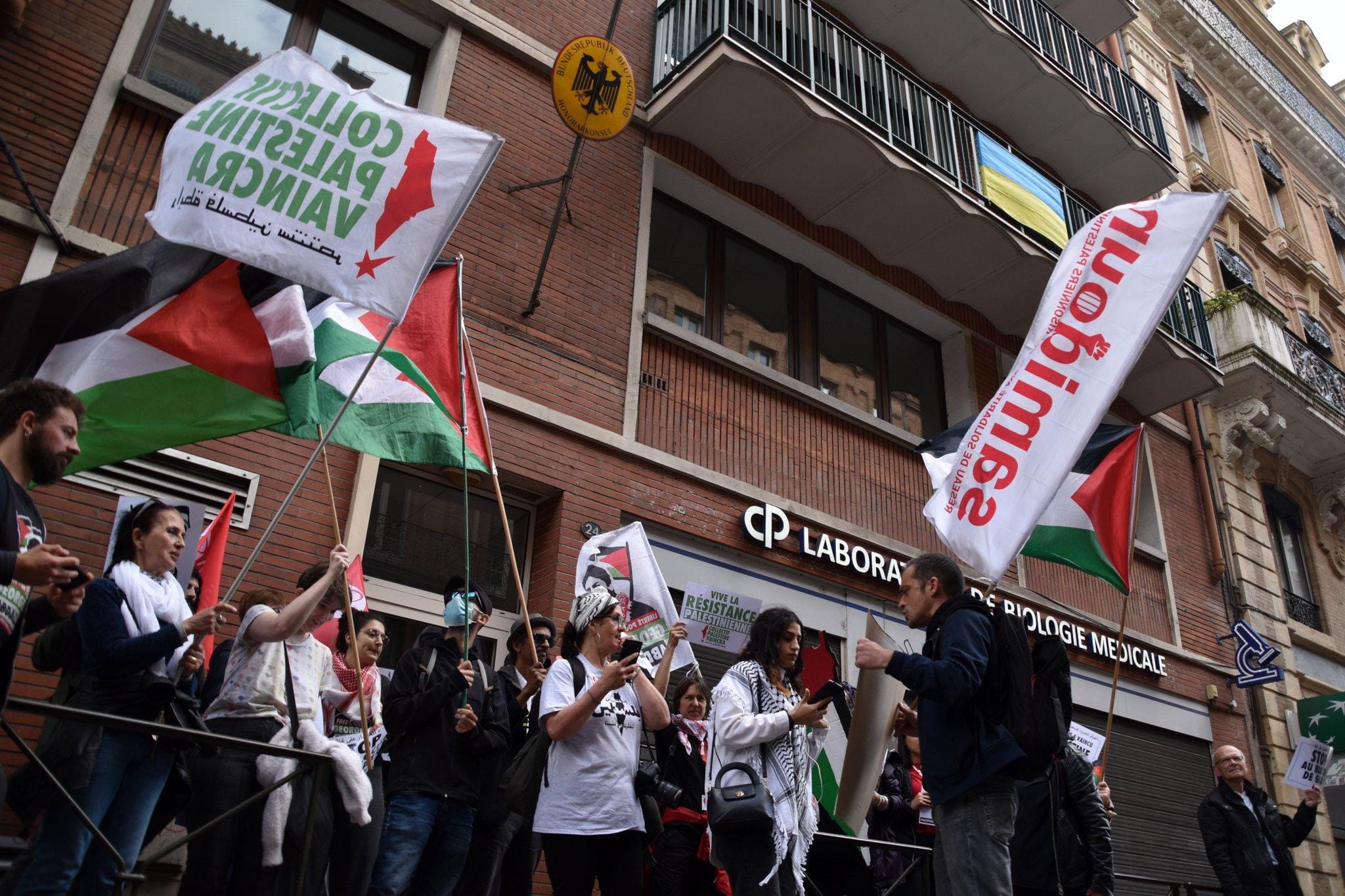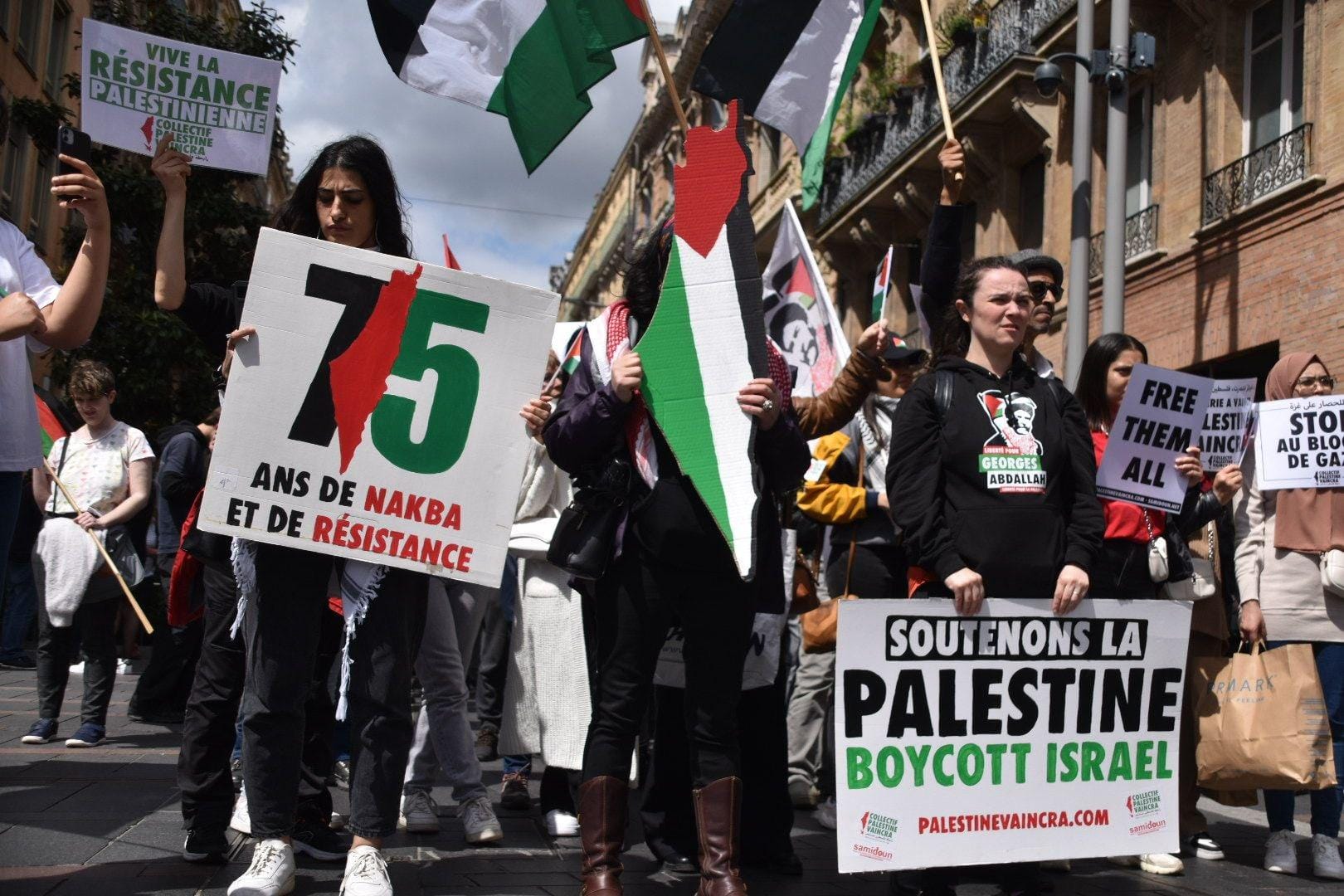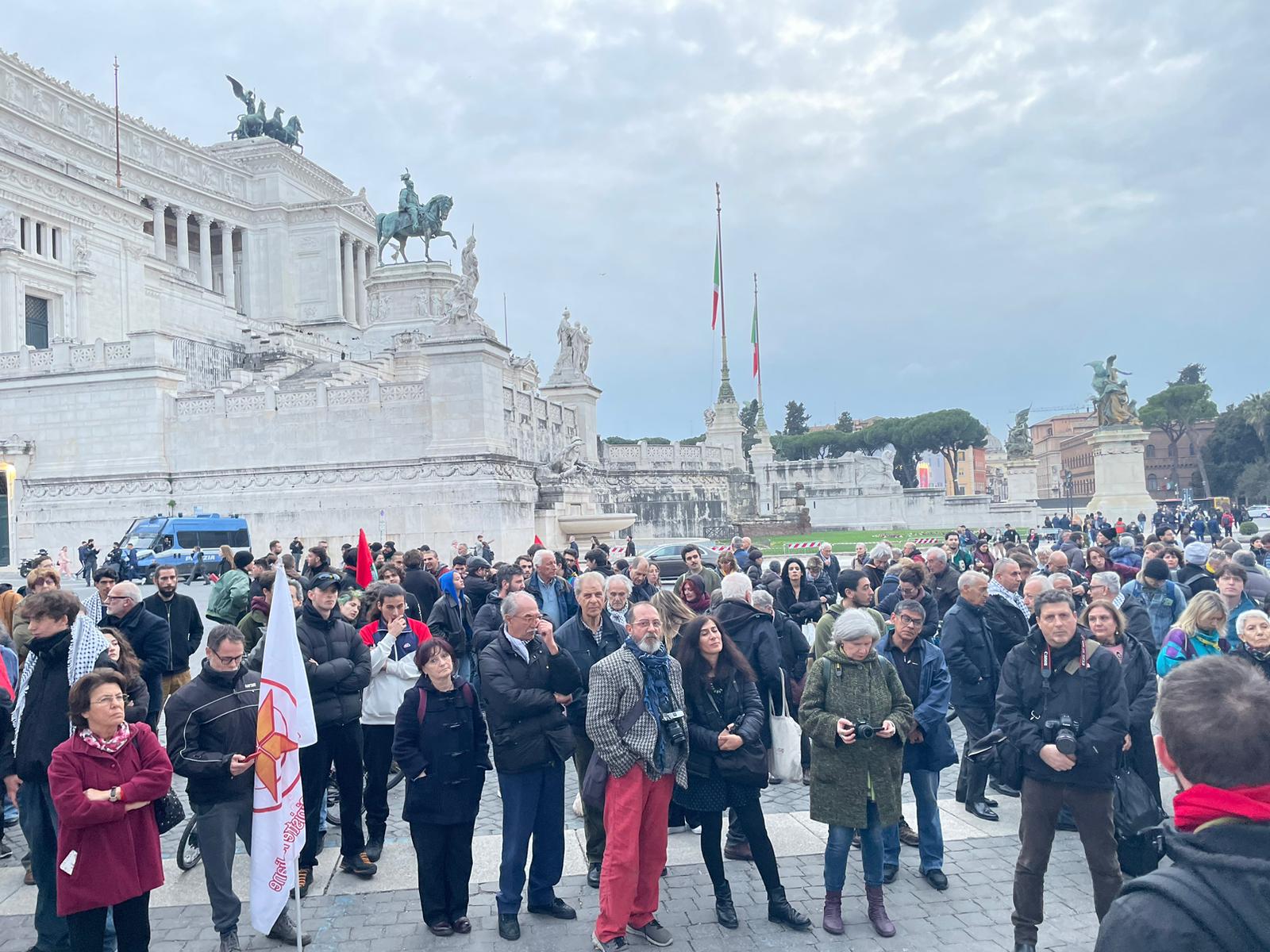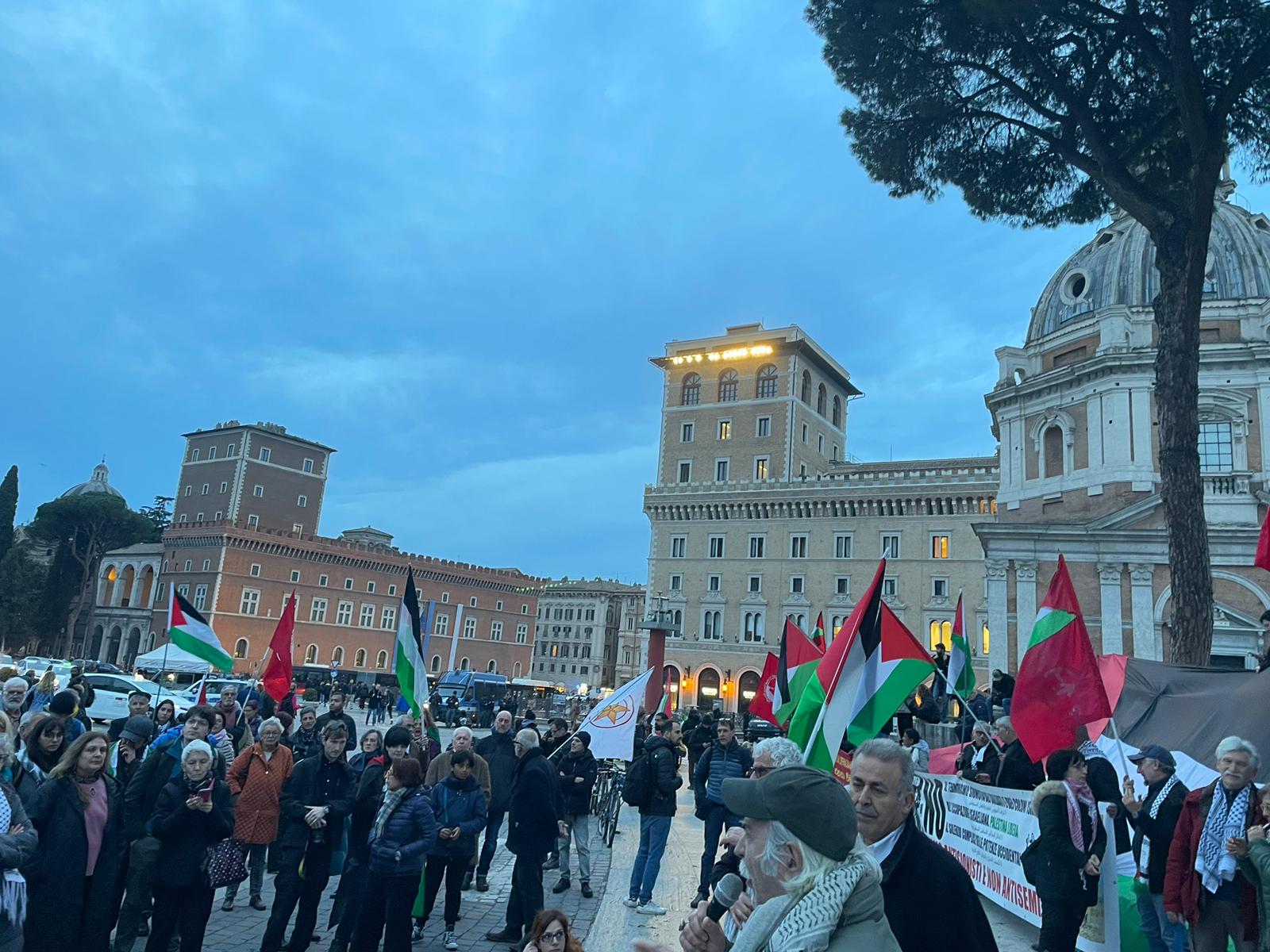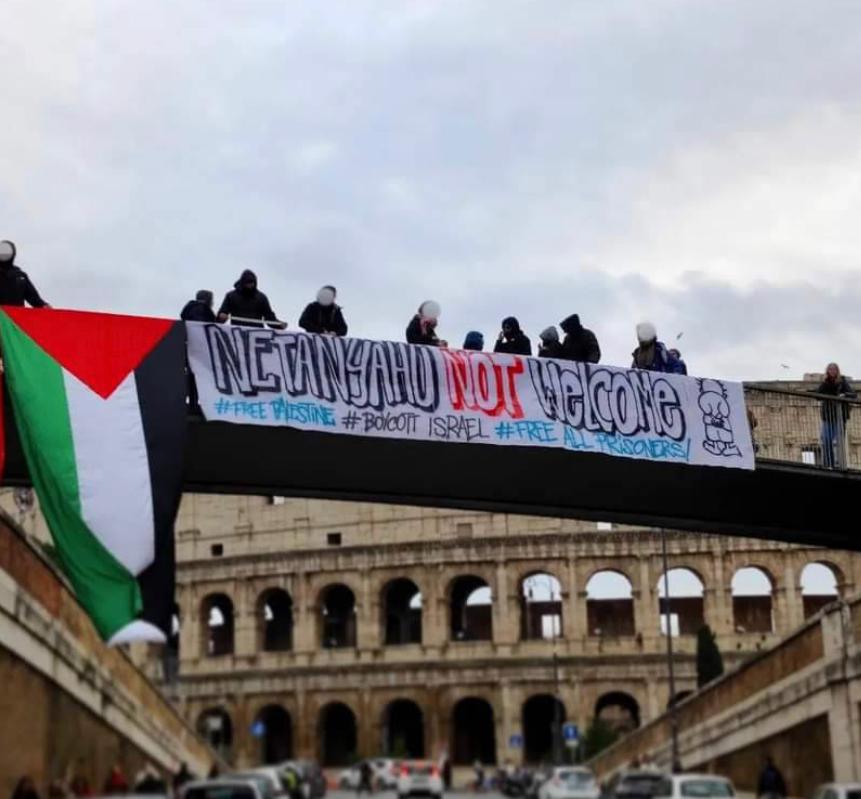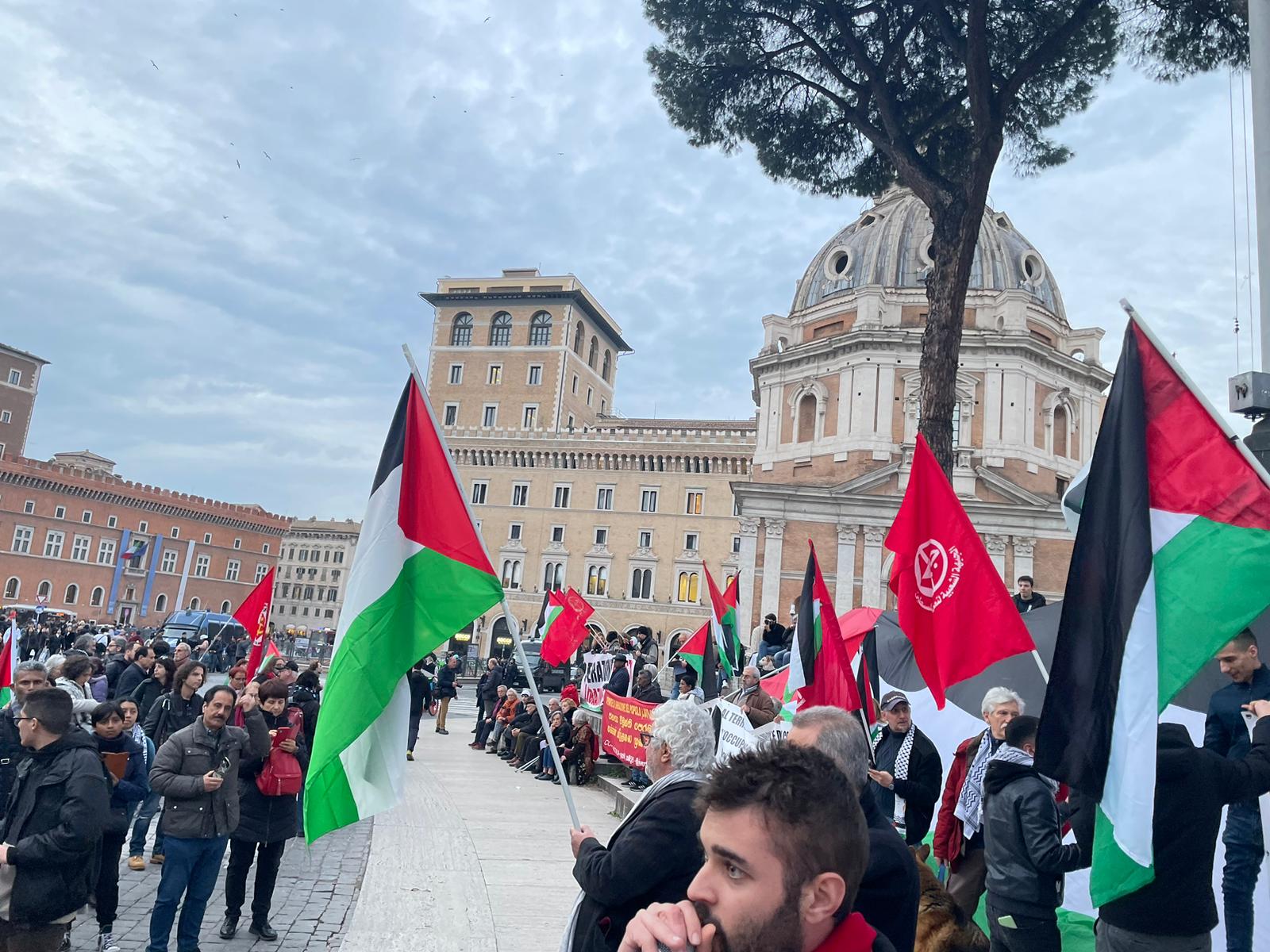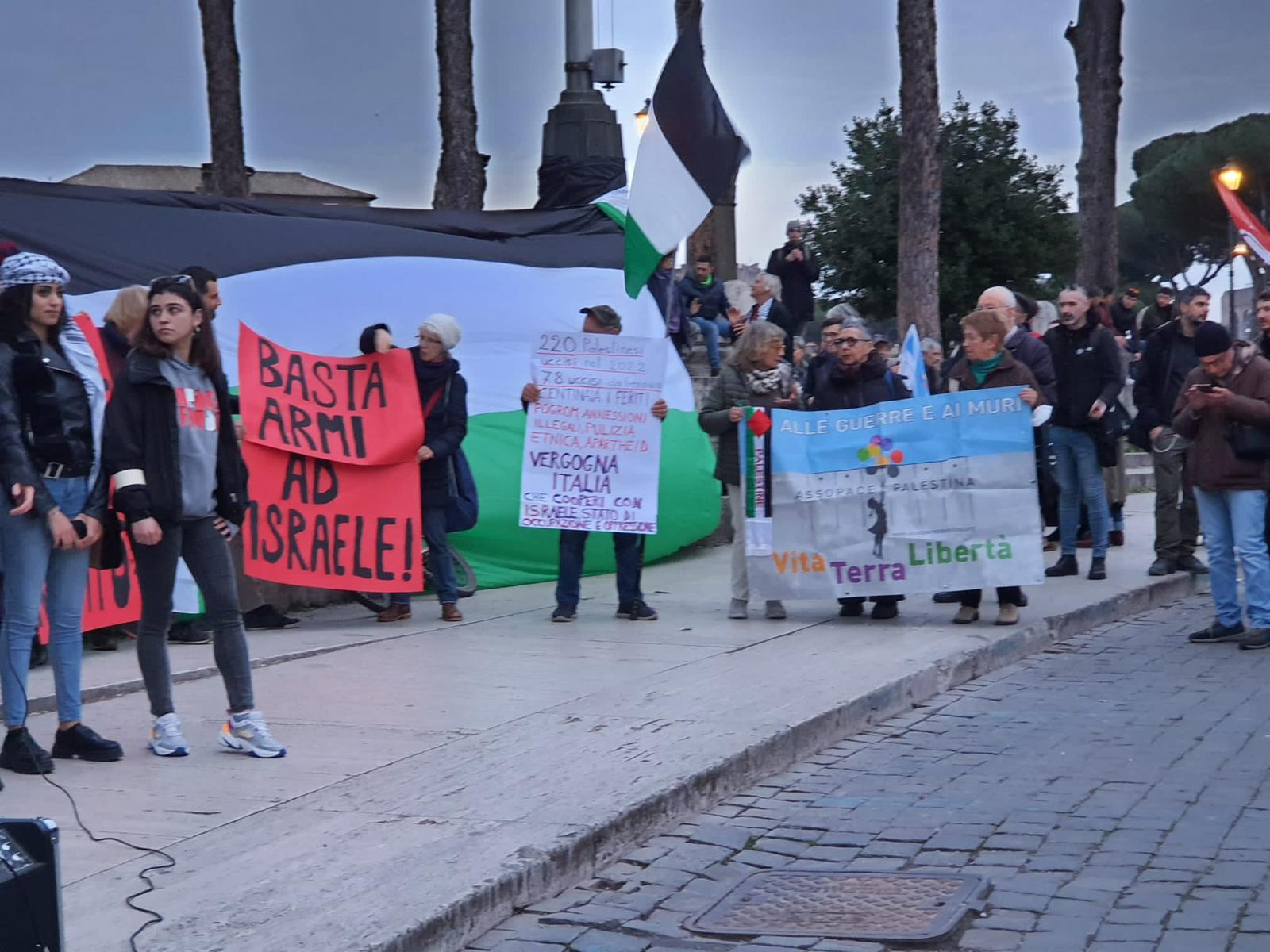Genocides in Palestine & Plotted Pandemic for Lethal Vaccines


For about 15 years he is a correspondent from Northern Italy for the Italian newspapers Libero and Il Giornale, also writing important revelations on the Ustica massacre, a report on Freemasonry and organized crime.
With independent investigations, he collaborates with Carabinieri and Guardia di Finanza in important investigations that conclude with the arrest of Camorra entrepreneurs or corrupt politicians.
In July 2018 he found the counter-information web media Gospa News focused on geopolitics, terrorism, Middle East, and military intelligence.
In 2020 published the book, in Italian only, WUHAN-GATES – The New World Order Plot on SARS-Cov-2 manmade focused on the cycle of investigations Wuhan-Gates
His investigations was quoted also by The Gateway Pundit, Tasnim and others
He worked for many years for the magazine Art & Wine as an art critic and curator.
“To the angel of the church in Smyrna write: These are the words of him who is the First and the Last, who died and came to life again. I know your afflictions and your poverty—yet you are rich! I know about the slander of those who say they are Jews and are not, but are a synagogue of Satan”.
Saint John Apostle and Evangelist – Book of the Revelation (Rev. 2, 8-10)
In the cover image the prime minister of the Israeli Zionist Regime Benjamin Nethanyau and the “Pope of Freemasonry” Albert Pike
NB – some quotes of American persons have been translated from sources in Italian so forgive any stylistic errors or differences with the original ones
By Fabio Giuseppe Carlo Carisio
«The revelation from Jesus Christ, which God gave him to show his servants what must soon take place. He made it known by sending his angel to his servant John, who testifies to everything he saw—that is, the word of God and the testimony of Jesus Christ. Blessed is the one who reads aloud the words of this prophecy, and blessed are those who hear it and take to heart what is written in it, because the time is near».
This Prologue to the Book of the Revelation (Apocalypse) of Saint John the Evangelist, the only Apostle who died without martyrdom as a reward for his loyalty to Jesus under the cross of Golgotha, reread in recent days, after almost a million deaths caused in recent years by the wars in Ukraine, Syria. Iraq and Libya (to name the best known) and after the genocide of the Israeli army in Palestine in which over 8 thousand children were massacred by bombs in a few weeks together with around 22 thousand adults, we should be inspired by a profound spiritual reflection also by virtue of the prophecy on Armageddon, the final battle of the armies foretold in the Holy Land in the same text on the Apocalypse which in Greek, it is good to remember it only means “revelation”, “prophecy” and not “catastrophe”.
They take on an equally tragic meaning if we think of the holocaust of millions of victims caused both by the pandemic triggered by a SARS-Cov-2 built in the laboratory and by the killer vaccines with which unscrupulous Big Pharma is testing the world population like a massive human guinea-pig to reach the transhumanist goal of eugenic health culture: denial of Nature and the Almighty God of the Judeo-Christian tradition, which has survived 7 thousand years of attempts at annihilation.
THE GENOCIDE OF THE PALESTINIANS AND THE HOLOCAUST OF THE VACCINATED
Faced with this extraordinary “pande-medic holocaust” made invisible by the denialism of those who govern politics and science in obedience to the powers of the New World Order clearly theorized as an evolution of NATO by the Hungarian-American plutarch George Soros in 1993, the Palestinian victims , Ukrainian, Syrian conflicts caused precisely by military conflicts plotted by the Atlantic Alliance and by Anglo-Saxon intelligence appear as the ordinary, inevitable consequence of the hatred and ferocity that has plagued human history since the time of Cain. This name will come back later…
Therefore, the biblical reference in the Book of Revelation to “those who proclaim themselves Jews and are not, but belong to the synagogue of Satan” does not appear in vain in the case of the Zionist leader Netanyahu who is carrying out a genocide of Palestinians after having mass vaccinated his fellow Israelis for a gigantic transversal business between the Weapons Lobby and Big Pharma with American President Joesph Biden.
Modern telecommunications means – where not blocked as in Gaza to prevent reckless reporters from documenting the war crimes ordered by Israeli Prime Minister Benjamin Netanyahu already renamed “the Hitler of the 21st Century” by Turkish lawyers who demand his indictment – have made the bloody genocide tacitly legalized by the West and carried out in the churches and hospitals of Palestine terrifying, bringing before the eyes and ears cries that implore revenge and make the sense of forgiveness waver even in Christians, all this satanic torment appears comparable screams from the silence imploded in the hearts of children torn by lethal myocarditis or in the brains devoured by turbo-cancer of the victims of adverse reactions to the mRNA Covid vaccines.
Precisely because their roar against death is silent, broken in the throat by a sudden illness of which political, health and judicial authorities too often do not want to detect and reveal traces of the FAILURE OF A SYSTEM. Precisely that of the New World Order which is seeking God’s mercy with the merciless human reason capable of killing an 8-month-old baby girl, Indi Gregory, although she had a concrete hope of being assisted.
THE CATACLYSM FORECAST BY THE “POPE” OF AMERICAN FREEMASONRY
If all this happening is not a coincidence but appears to be an international and historical conspiracy foreseen in very remote times by the American “Pope of Freemasonry”, a Southern general, about whom we have already written, who was among the Confederate supporters of the Civil War but also among the founders of the KuKluxKlan and among the followers of satanic rites: Albert Pike.
We have already mentioned his extensive correspondence with the 33rd degree Freemason of the Supreme Council of the Ancient Accepted Scottish Rite Giuseppe Mazzini who, thanks to the financing of the hooded friends of the London lodges ready to host him even though he was a fugitive terrorist in Europe, planned the Expedition of the Thousand of Masonic guerrilla Giuseppe Garibaldi with whom the Kingdom of Italy wrested a part of Rome from the Papal State in the gigantic and crude plot against Christianity and the Catholic Church, partly attenuated only by the faith of the Ruling Savoy Dynasty.
But we had missed some passages which in the light of today’s events take on monstrous relevance, furthermore proving the imprint of Freemasonry, like a Mark of the Beast, in every religious and political conflictual drift, prodigiously foreseen in detail by General Pike.
In these first episodes we will analyze the conspiratorial complicity of Freemasonry with Zionism. In the next one with Nazism and Jihadist Islamism, where in a previous investigation we have analyzed the role of hooded men between Capitalism and Communism.
«The Third World War will have to be fomented by taking advantage of the differences stirred up by the agents of the Illuminati between political Zionism and the leaders of the Islamic world. The war will have to be oriented so that Islam (including the State of Israel) destroy each other, while at the same time the remaining nations, once again divided and opposed to each other, will then be forced to fight each other until to complete physical, mental, spiritual and economic exhaustion».
This is what Pike wrote to Mazzini on 15 August 1871 in a letter according to the revelations made by the commodore of the Canadian navy William Guy Carr which he later reported in his famous 1954 book Pawns in the Game. He stated that he learned about the letter from the anti-Mason, Cardinal José María Caro Rodríguez of Santiago, Chile, the author of The Mystery of Freemasonry Unveiled (Hawthorne, California, Christian Book Club of America, 1971).
The Navy official can be considered very reliable as worked also for the Canadian Intelligence Service during World War II, and in 1944 he published Checkmate in the North, a book about an invasion by the Axis forces to take place in the area of the CFB Goose Bay (Canadian Forces Base Goose Bay).
Carr’s books often discuss a Luciferian conspiracy by what he called the “World Revolutionary Movement,” but he later attributed the conspiracy more specifically to the “Synagogue of Satan.”
The term was not a reference to Judaism as he wrote: “I wish to make it clearly and emphatically known that I do not believe the Synagogue of Satan (S.O.S.) is Jewish, but, as Christ told us for a definite purpose, it is comprised of ‘I know the blasphemy of them which say they are Jews, and are not, but are the synagogue of Satan.’ (Rev. 2:9 and 3:9)

The Canadian commodore reported what we had already mentioned in the previous investigation on Pike and which we will try to contextualize both in the biblical, esoteric and historical context in the following lines.
«The First World War had to be fought to allow the “Illuminati” to overthrow the power of the czars in Russia and transform this country into the fortress of atheist communism. The differences stirred up by “Illuminati” agents between the British and German Empires were used to foment this war. After the war was over, communism had to be built and used to destroy other governments and weaken religions».
Citing Confederate General Pike who was Grand Master of the Mother Lodge of Charleston (but also, in all probability, the only Southerner to have had, until recently, a statue in his memory in the USA sculpted by an Italian but recently destroyed by vandals), the commodore added:
«The Second World War had to be fomented by taking advantage of the difference between fascists and political Zionists. The war had to be fought in order to destroy Nazism and increase the power of political Zionism, in order to allow the establishment of the sovereign state of Israel in Palestine. During the Second World War, a Communist International had to be established as strong as the whole of Christianity. At this point the latter had to be contained and kept under control until required for the final social cataclysm».
Rereading these sentences after having published an investigation into the recent Israeli military plan for the genocide and forced exodus of Palestinians in Egypt and Europe represents a disturbing and burning confirmation but is not enough to understand the deepest motivations of the diabolical NWO conspiracy.
On 15 August 1871, as revealed by Carr, the Pope of American Freemasonry Pike revealed to Mazzini that at the end of the Third World War those who aspire to World Government would cause the greatest social cataclysm ever seen.
«We will unleash the nihilists and atheists and provoke a formidable social cataclysm which will clearly show, in all its horror, to the nations, the effect of absolute atheism, the origin of barbarism and bloody subversion».
And then again:
«Then everywhere citizens, forced to defend themselves against a world minority of revolutionaries, these destroyers of civilization, and the multitude disillusioned by Christianity, whose worshipers will be devoid of orientation in search of an ideal, will receive the true light through the universal manifestation of pure doctrine of Lucifer finally revealed to the public eye, a manifestation which will be followed by the destruction of Christianity and atheism conquered and crushed at the same time».
GEOPOLITICAL ANALYSIS OF THE THIRD WORLD WAR IN FRAGMENTS
If we carefully analyze what has happened in the last twenty years, rereading them with the lens of a geopolitical intelligence analysis, we can put together these dramatic events that prove the gradual increase of the Third World War “in a patchy pattern, in fragments, or in small pieces” as defined several times by Pope Francis.
September 11, 2001 – From the World Trade Center to the War in Afghanistan
Avoidable massacre of the attacks on the Twin Towers facilitated by the obstacles posed by the American counter-espionage of the Central Intelligence Agency (CIA) to the investigations of the director of anti-terrorism of the FBI John O’Neill (who died in the World Trade Center where he was hired after being fired following sabotage of his professional activity). The hidden role of the Israeli counter-intelligence Mossad came to light immediately, recently with the disconcerting confirmation that two of the hijackers were collaborating with the CIA.
Thanks to that event, the USA, led by the Weapons Lobby controlled by investment funds of Zionist financiers such as Larry Fink, began the terrible and unsuccessful war in Afghanistan
July 18, 2007 – Hamas conquers Gaza
Palestinian President Abbas issued a decree outlawing the Hamas militias who defeated Fatah (a Palestinian political and paramilitary organization, part of the PLO, of which Yasser Arafat was leader) and therefore removed the Gaza Strip from the control of the Authority Palestinian national authority.
According to various intelligence experts including a former CIA director, Hamas, linked to the Sunni Muslim Brotherhood (sons of another Masonic history…), was financed by the USA and Israel precisely to lead to the Palestinian exodus plan that was configured in recent days after the attacks of 7 October which took the highly expert Israeli secret services (Shin Bet, Mossad and the military Aman) by surprise.
March 15, 2011 – Civil War in Syria
The Syrian Civil War begins thanks to the Color Revolution financed by Soros and armed by the CIA’s MOM operation with the supply of TOW anti-tank missiles to extremist jihadist factions related to Al Qaeda.
In 2014, ISIS founded by Caliph Al Baghdadi entered the war shortly after his liberation from Camp Bucca where he was detained by the US Army for terrorist activity in Iraq. He was believed to be a Mossad and CIA agent
February 20, 2014 – Start of the War in Ukraine
The second Orange Revolution financed by the Zionist Soros in Kiev explodes in all its violence due to the shooting of mysterious mercenary snipers on Ukrainian policemen and the crowd. It seems like a repeat of what the CIA hatched in 2002 in Caracas. The coup financed by NATO countries materializes with the escape of the legitimately elected president Viktor Fedorovyč Yanukovych to friendly Russia.
From there begins the Donbass Civil War which became a Global Conflict after the start of Moscow’s military operation to protect the pro-Russian victims of genocide by the neo-Nazi guerrillas of the Azov Battalion led by the Kiev Regime and also armed by Israel in an apparent, crazy paradox …
April 2014 – “Sabotaged” elections in Palestine
Fatah and Hamas sign agreements in Gaza for the return to voting in all PNA territories, foreseeing elections for the following October.
In July, however, the Israelis launched Operation Protective Edge to destroy clandestine tunnels into their country, triggering a resurgence of military clashes. Only on 28 August was a ceasefire declared by both sides but the electoral consultations were postponed and never agreed upon again.
October 2023 – Genocide Planned and Legalized in Gaza
Hamas captures hostages from an Israeli Rave Party and several kibbutz settlers in the illegally occupied territories. Israel responds disproportionately by bombing everyone, women, children, hospitals, churches, UN officials. Few Western politicians denounce a GENOCIDE which instead appears LEGALIZED by almost all NATO countries.
If we correlate the recurring subjects of these events it is easy to deduce that the Third World War in fragments has already been implemented for at least two decades with an enormous occult direction of that NATO evoked by Soros to embody the New World Order.
ANALYSIS OF THE SOCIAL CATALYSM: MANMADE VIRUS PANDEMIC
Let’s go back to the tired “forecasts” of the Freemason Albert Pike and reread a significant phrase:
«We will unleash the nihilists and atheists and provoke a formidable social cataclysm which will clearly show, in all its horror, to the nations, the effect of absolute atheism, the origin of barbarism and bloody subversion».
Since 2001, the American virologist Anthony Fauci began playing with dangerous viruses manipulated in the laboratory as biological weapons thanks to enormous funding provided by both the Department of Health and Defense, including through Pentagon agencies such as DARPA.
In 2004 the European Commission chaired by Romano Prodi, a Soros associate, financed the Wuhan Institute of Virology strengthened by the son of President Jiang Zemin, the Executioner of Tiananmen, also in light of an agreement on collaborations for research in the bacteriological field signed with the American president Bill Clinton in 1999.
In December 2019 the first outbreak of SARS-Cov-2 was discovered in Wuhan and for over 2 years the USA blamed the Chinese while the scientific community of Fauci & Co. tried to cover up the artificial orgone ascertained by the Senate Health Commission and the House Investigation Committee of the US Congress only in 2023.
Now even many US politicians admit their nation’s role in building the laboratory virus. This is denied by the National Intelligence Directorate led by Avril Haines who was deputy CIA director expert in bio-weapons when Fauci was carrying out experiments on Coronaviruses on behalf of the Obama-Biden administration together in Wuhan.
European Union politicians continue to ignore or deny the artificial origin of the virus. While almost everyone has welcomed, so much so as to impose them as mandatory even for many professional categories, the experimental mRNA genetic serums based on the toxic Spike protein and promoted by a swirl of billionaire interests of Big Pharma with governments and the usual Zionist lobbies who also invest in Warlord corporations.
Even the Catholic Church genuflects to the Vaccine GOD.
Let’s reread Pike’s prophecy again, a truly disturbing name when associated with the almost homonymous Covid-19 protein.
«Then everywhere citizens, forced to defend themselves against a world minority of revolutionaries, these destroyers of civilization, and the multitude disillusioned by Christianity, whose worshipers will be devoid of orientation in search of an ideal, will receive the true light through the universal manifestation of pure doctrine of Lucifer finally revealed to the public eye, a manifestation which will be followed by the destruction of Christianity and atheism conquered and crushed at the same Time»
HISTORICAL ANALYSIS OF THE RELATIONSHIP BETWEEN FREEMASONRY AND ZIONISM
The detractors of the military geopolitical analyst and writer William Guy Carr who refers to the diabolical plan of the Pope of American Freemasonry are based on the fact that Albert Pike in 1871 could not have known about the birth of Communism, nor of Nazism, nor of Zionism.
Nor even knowing about the two world wars. Unless you were among those who designed them.
This observation can easily be refuted by citing some historical references already mentioned and which we will highlight.
«In July 1782 the Order of the Illuminati allied itself with Freemasonry during the Congress of Wilhelmsbad, which the historian Freemason Albert Mackey defined as ‘the most important Masonic Congress of the eighteenth century’ – we read on the website Freemasonry Unmasked, full of anecdotes and authoritative historical sources – The participants in that Congress had to swear not to reveal the decisions they had made to anyone (see Nesta H. Webster, World Revolution, 1921, page 31)».
Wilhelmsbad Castle was owned by the Ashkenazi Jewish banker (of Khazar-European origins) Mayer Amschel Rothschild who, according to various historians, in 1777 brought together twelve of his most influential friends and convinced them that if they pooled their resources they could dominate the world: this is how the Bavarian Illuminati was born.
The French Revolution confirms their success with the annihilation of the first important Catholic Monarchy. It will be the experience of the Paris Commune of 1871, the regurgitation of the regime of terror, that will inspire Lenin in his plan for the subsequent Bolshevik and Communist revolution.
So Pike was not only still alive at the time but knew the details.
The Independent Order B’nai B’rith or Bené Berith (Hebrew: בני ברית, “sons of the covenant”) is a Jewish lodge founded in 1843 during the presidency of John Tyler and still existing and active. It was founded at the Sinsheimer Café, in the Wall Street neighborhood of New York, by Henry Jones and eleven other people on October 13, 1843. The original name was in German “Bundes-Brueder” (which means “League of Brothers”), in the current one which retains the initials (“BB”).
Most of the founders were German-Jews: that is, Ashkenazi like Mayer Amschel Rothschild but also like his descendant Walter Rothschild, eldest son and heir of the banker Nathan Mayer Rothschild, the first Jewish baron of England.
Walter Rothschild was among the promoters of the declaration for the formation of the Jewish state in Palestine, later earning the merit of becoming president of the Council of Deputies of British Jews from 1925 to 1926.
From these seeds we arrived at 1917 when a letter from the British Foreign Minister Arthur Balfour, addressed to the “Dear Lord Rothschild”, sanctioned Balfour’s declaration which committed the British government to supporting the creation in Palestine of a home for the Jews in respect for the rights of other resident minorities.
How did Albert Pike know all these things before they happened?
Very simple because he was among those who concerted them in 1860 when the Southern general through Young America planned the American Civil War to defend the right to slavery, Mazzini with Young Italy committed himself to the Expedition of the Thousand and Henry John Temple, 3rd Viscount of Palmerston, British Secretary of State and exponent of the Grand Lodge of England guaranteed all financial and political support.
The first expressions of proto-Zionism took shape, for example, in the foundation of the Universal Israelite Alliance in 1860, an organization aimed at the emancipation of the Jewish communities in the Middle East and North Africa, and in the publication of various works, including Rome and Jerusalem, written in 1862 by the German Jewish philosopher Moses Hess, Derishat Zion by the Polish-Prussian rabbi Zvi Hirsch Kalischer, and the hymn Hatikvah, whose lyrics were written by Naftali Herz Imber and which later became the anthem of the State of Israel.
Zionism draws its roots from the new cultural environment generated in the context of the emancipation of European Jews starting from the French Revolution and throughout the 19th century and from the Haskalah.
The haskalah, with a small delay compared to other Enlightenment movements, arose in Germany and then spread throughout much of Europe and to a small extent also across the Atlantic. The father and inspirer of the movement was Moses Mendelssohn, close to Gotthold Ephraim Lessing, a free thinker of Protestant extraction and an energetic defender of the Jews in Germany. The latter introduced Mendelssohn into the world of Berlin intellectuals where he dedicated himself to the composition of philosophical essays and dissertations.
A varied and open movement, the haskalah probably did not close its doors even to exponents of the Frankist heresy, a sort of tail of the messianic movement of Shabatai Zevi which had long been in opposition to official Judaism, perhaps linked to lodges of freemasonry, another force of the times, definitely in relation to the Enlightenment philosophy.
Many Jews influenced by the haskalah and the closeness it brought with European culture were seduced by the possibility of assimilation by embracing Christianity. Just think of the family of Karl Marx, descended from rabbis who converted to Protestantism, as did Mendelssohn’s own daughters. Others, however, laid the foundations of the new science of Judaism, the Wissenschaft des Judentums.
THE LODGES INSPIRED BY THE SON OF THE BIBLICAL MURDERER CAIN
In the previous investigation we highlighted how Marx received the task of writing Capital from British Freemasonry. In other reports we have highlighted the fundamental role played by the Protestants in the birth of the Grand Lodge of London on 24 June 1717.
Today we add another detail by recalling the figure of John Theophilus Desaguliers (La Rochelle, 12 March 1683 – Covent Garden, 29 February 1744) who was an English scientist, religious and Freemason of French origins.
Desaguliers emigrated to England in 1694, due to the Edict of Fontainebleau, which revoked the freedom of worship of Protestants. He approached Freemasonry, becoming Grand Master of the First Grand Lodge of England in 1718, and Deputy Grand Master in 1723 and 1725. Under his leadership, the Grand Lodge of London and Freemasonry developed in an “astonishing” way in the islands British, to the point that «in 1740 there were already more than 180 lodges».
Each of the earliest Masonic texts contains some sort of history of the craft, or guild, of Freemasonry. The oldest work of this type, the Royal Manuscript, dating from 1390 to 1425, has a brief history in the introduction, which states that the “craft of Freemasonry” began with Euclid in Egypt, and arrived in England during the reign of ruler Æðelstan.
A little later, the Cooke Manuscript traces Freemasonry to Jabal, son of Lamech (Genesis 4, 20-22), and tells how this knowledge reached Euclid, from him to the children of Israel when they were in Egypt, and so on for an elaborate route to Æðelstan. This myth formed the basis for later manuscript foundations, all of which claim that Freemasonry dates back to Biblical times, and pegs its institutional consolidation in England during the reign of Æðelstan (927-939).
Shortly after the formation of the first Grand Lodge of England, James Anderson was commissioned to summarize these “Gothic constitutions” into a pleasing modern form. The constitutions produced by his work have a more widespread historical introduction than any previous one, and once again connect the history of what Freemasonry had become to its biblical roots, always inserting Euclid into the chain of narrative.
The first question that a connoisseur of Judeo-Christian history should ask is almost banal.
Why do the Freemasons, due to fabulous legendary and historical beliefs, trace Freemasonry to one of the descendants of the murderer Cain and not to the third son of Adam named Set from whom the Semitic culture was born?
In this, the manipulation carried out over the centuries by Rabbinic Taldumist Judaism, well described by the Judaism expert Professor Paola Persichetti in the previous investigations in which she highlights the correlations of this Jewish regurgitation following the Destruction of the Temple of Jerusalem, seems evident.
In France, Chevalier (Knight) Ramsay’s 1737 conference added Crusader Freemasons to the family tree claiming that they had revived the craft with secrets recovered in the Holy Land, under the patronage of the Knights Hospitaller. At this point, the “history” of the profession of continental Freemasonry separated from that of Freemasonry in England which in the meantime had published its “charter”.
THE SCHSM ON THE GREAT ARCHITECT OF THE UNIVERSE
The Constitutions of the Free-Masons, “for the use of the lodges” in London and Westminster, was published in 1723. It was edited by the Presbyterian clergyman James Anderson, by order of John Theophilus Desaguliers, and approved by a committee of the grand lodge under its control. The work was reprinted in Philadelphia in 1734 by Benjamin Franklin, who in that year became Grand Master of the Pennsylvania Freemasons. It was also translated into Dutch (1736), German (1741) and French (1745).
Anderson was minister of the Presbyterian church in Swallow Street, London, which had formerly been a Huguenot church, and whose pastor in the 1690s was Desaguliers’ father. At the time of his meeting with Desaguliers, he appears to have presented himself as a Talmudic scholar.
In various historical testimonies that we summarize for brevity, Anderson himself seems to imply the existence of an Italian Grand Lodge.
In Naples in 1728 he saw the light of the first regular Masonic lodge established in Italy, La Perfetta Unione. Raised by the will of the Prince of San Severo, it had Egyptian symbols such as the pyramid, the Sphinx and the radiant sun in its emblem. Subsequently, the English lodge (“La Loggia degli Inglesi”) was established in Florence, founded in 1731 and Freemasonry spread rapidly, despite a series of papal prohibitions.
But already ahead the so-called Great Schism occurred. According to a widespread opinion, the schism between French and English Freemasonry originates from the general assembly of the Grand Orient of France in September 1877. Accepting the recommendation contained in a report by the Protestant pastor (and Freemason) Frédéric Desmons, the assembly decided by a majority of amend its constitutions by inserting the formula “its principles are absolute freedom of conscience and human solidarity”. This replaced the previous statement “its principles are the existence of God, the immortality of the soul and human solidarity”.
The reaction of the United Grand Lodge of England (UGLE) was the resolution of March 1878 which reiterated “That the Grand Lodge, while anxious to welcome in the most fraternal spirit the Brethren of any foreign Grand Lodge whose proceedings are conducted according to the Ancient cornerstones of the Order, among which the first and most important is the faith in T. G. A. O. T. U. [“the great Architect of the universe”, in English acronym], cannot recognize as ‘true and genuine’ Brothers all those who have been initiated in lodges that deny or ignore that faith.”
FREEMASONRY SIMILAR TO THE BEAST OF THE APOCALYPSE
Having concluded this long but necessary historical digression on Freemasonry implemented with various Wikipedia sources, let’s return to the beginning. To the book of the Apocalypse of Saint John and the disturbing esoteric symbolisms.
If we summarize the historical notes above we can easily conclude that the first promoters of Zionism in the USA were the founders of the B’nai B’rith Lodge composed of Ashkenazi Jews (as Adolph Hitler is also believed to be) that the historians of Jewish culture they define the “13th Tribe of Israel” as they derive from the diaspora of the Khazars who had converted to Judaism
While in Europe it spread thanks to the Rothschild Dynasty (Red Shield) which was the first to weave subversive plots with an anti-Catholic vocation from the birth of the Bavarian Illuminati up to the pact of terror for the French Revolution from which the liberation of the proto- Zionism together with that Masonic concept of “Liberté, Égalité, Fraternité” imposed by guillotining even the elderly nobles of the Catholic Vendée French region.
In light of all this, the words of the Satanist Albert Pike, Pope of American Freemasonry, take on an iconic relevance in the common project between Masonic and Zionist Lodges for the New World Order:
«Then everywhere citizens, forced to defend themselves against a world minority of revolutionaries, these destroyers of civilization, and the multitude disillusioned by Christianity, whose worshipers will be devoid of orientation in search of an ideal, will receive the true light through the universal manifestation of pure doctrine of Lucifer finally revealed to the public eye, a manifestation which will be followed by the destruction of Christianity and atheism conquered and crushed at the same time».
But following this hermeneutical path to the Book of the Apocalypse, one of the most important allegories comes to mind with disconcerting and terrifying impetus:
«The dragon stood on the shore of the sea. And I saw a beast coming out of the sea. It had ten horns and seven heads, with ten crowns on its horns, and on each head a blasphemous name. The beast I saw resembled a leopard, but had feet like those of a bear and a mouth like that of a lion. The dragon gave the beast his power and his throne and great authority. One of the heads of the beast seemed to have had a fatal wound, but the fatal wound had been healed. The whole world was filled with wonder and followed the beast. People worshiped the dragon because he had given authority to the beast, and they also worshiped the beast and asked, “Who is like the beast? Who can wage war against it?» (Rev. 13, 1-4)
The prophet Saint John the Apostle and Evangelist delves into the concept with an aura vision
«Then I saw a second beast, coming out of the earth. It had two horns like a lamb, but it spoke like a dragon. It exercised all the authority of the first beast on its behalf, and made the earth and its inhabitants worship the first beast, whose fatal wound had been healed» (Rev. 13, 11-12)
It is not really scary to note how traditional esoteric Freemasonry became manifest thanks to the Anglican political schism of the Protestants and allowed Pharisaic Judaism, defeated by the Diaspora after the Crucifixion of the Messiah awaited by the Jews, to be reborn in its Talmudic form with Judaism then became with Zionism the most powerful component of the New World Order?
We have historical clues that help identify Freemasonry as one of the two apocalyptic Beasts. But this theme will be explored in greater depth if and when we receive from the Holy Spirit the gift of the wisdom necessary to interpret it. Therefore today we cannot help but insinuate doubt…
POWER OF CHRIST IN THE PROPHECY OF SAINT JOHN THE APOSTLE
But it is precisely Chapter 12 of the Book of the Apocalypse (Rev. 12, 7-12) which comes to illuminate with a radiant dawn of hope the dangers of all of us Christians who strive to be among those “who listen to the words of this prophecy and put into practice the things that are written in it”:
«Then war broke out in heaven. Michael and his angels fought against the dragon, and the dragon and his angels fought back. But he was not strong enough, and they lost their place in heaven. The great dragon was hurled down—that ancient serpent called the devil, or Satan, who leads the whole world astray. He was hurled to the earth, and his angels with him».
Then I heard a loud voice in heaven say:
“Now have come the salvation and the power
and the kingdom of our God,
and the authority of his Messiah.
For the accuser of our brothers and sisters,
who accuses them before our God day and night,
has been hurled down.
They triumphed over him
by the blood of the Lamb
and by the word of their testimony;
they did not love their lives so much
as to shrink from death.
Therefore rejoice, you heavens
and you who dwell in them!
But woe to the earth and the sea,
because the devil has gone down to you!
He is filled with fury,
because he knows that his time is short.”
Since Saint John was the only Apostle who died without martyrdom for his loyalty to Jesus Christ under the cross and also survived the hell of imprisonment on Patmos (where he received the visions and locutions collected in the Apocalypse), it is probably very useful to start believing him…
Subscribe to the Gospa News Newsletter to read the news as soon as it is published
Fabio Giuseppe Carlo Carisio
© COPYRIGHT GOSPA NEWS
prohibition of reproduction without authorization
follow Fabio Carisio Gospa News director on Twitter
follow Gospa News on Telegram
MAIN SOURCES
BOOK OF REVELATION (APOCALYPSE) – HOLY BIBLE
STORIA DELLA MASSONERIA – WIKIPEDIA
GOSPA NEWS – CONSPIRACY – FREEMASONRY – NWO
GOSPA NEWS – CHRISTIANS PERSECUTED
GOSPA NEWS – WUHAN-GATES DOSSIER
GOSPA NEWS – WEAPONS LOBBY DOSSIER
GOSPA NEWS – COVID-19, VACCINES & BIG PHARMA DOSSIER
Most popolar investigation on VT is:
Fabio Giuseppe Carlo Carisio, born on 24/2/1967 in Borgosesia, started working as a reporter when he was only 19 years old in the alpine area of Valsesia, Piedmont, his birth region in Italy. After studying literature and history at the Catholic University of the Sacred Heart in Milan, he became director of the local newspaper Notizia Oggi Vercelli and specialized in judicial reporting.
For about 15 years he is a correspondent from Northern Italy for the Italian newspapers Libero and Il Giornale, also writing important revelations on the Ustica massacre, a report on Freemasonry and organized crime.
With independent investigations, he collaborates with Carabinieri and Guardia di Finanza in important investigations that conclude with the arrest of Camorra entrepreneurs or corrupt politicians.
In July 2018 he found the counter-information web media Gospa News focused on geopolitics, terrorism, Middle East, and military intelligence.
In 2020 published the book, in Italian only, WUHAN-GATES – The New World Order Plot on SARS-Cov-2 manmade focused on the cycle of investigations Wuhan-Gates
His investigations was quoted also by The Gateway Pundit, Tasnim and others
He worked for many years for the magazine Art & Wine as an art critic and curator.
SOURCE Gospa News
Previous articleThird Reich occultism is reborn in Ukraine, NATO and the EU
Filed under: 9/11, Asia, Canada, China, EU, Europe, ISIS – Daesh, Italy, Ukraine, United Kingdom UK, US-led NATO Alliance, USA, Zionism | Tagged: Atheism, Besieged Gaza Strip., Big Pharma, Capitalism, Catholic Church, CIA, Color Revolutions, Communism, COVID-19 and the Big Pharma, Freemasons, Gaza Genocide, Global war on Syria, Hamas Resistance movement, KuKluxKlan, Nazism, NWO, Pope Francis, Soros “Open Society”, Synagogue of Satan, US President Joe Biden’s administration, Vaccines, WWIII | Comments Off on FREEMASONRY & ZIONISM – 1. Apocalyptic “Cataclysms” by Synagogue of Satan












